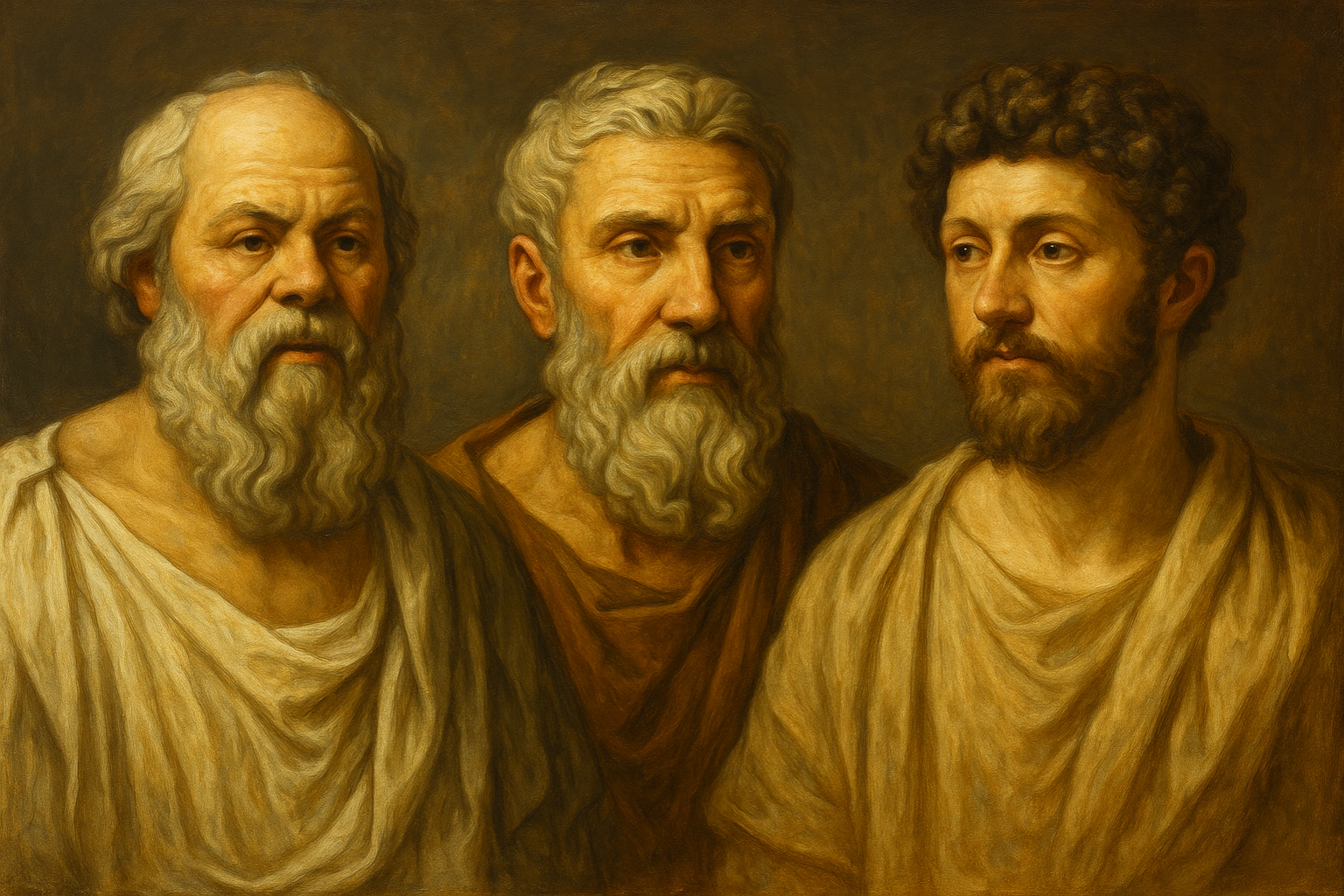Feeling overwhelmed by stress and overthinking? Learn how ancient wisdom from Socrates and beyond can help you manage anxiety today using these five self-reflection tools.
Introduction:
Overthinking is like running on a treadmill that’s going nowhere, but faster. Your brain replays the same worries, doubts, and “what ifs” like a broken record. Sound familiar?
The good news? You don’t need to silence your mind; you need to train it. And who better to teach us how than history’s greatest thinkers?
Let’s build your personal Anxiety Management Toolkit, inspired by both modern psychology and the timeless insights of philosophers like Socrates, Epictetus, and Marcus Aurelius. These tools aren’t just for scholars; they’re for anyone tired of living in mental chaos.
1. Label Your Emotions – “Name It to Tame It”
The Greek philosopher Epictetus once said, “It is not what happens to you, but how you react to it that matters.”
But how can you react wisely if you don’t know how you’re feeling?
Instead of saying “I’m stressed,” try getting specific:
- “I feel anxious because I’m afraid I will fail.”
- “I feel embarrassed because I made a mistake.”
- “I feel uncertain about tomorrow’s presentation.”
Why it works: Naming your emotions activates the rational part of your brain (prefrontal cortex), giving you more control. It moves you from being in the storm to observing the weather.
2. Build Self-Awareness – “Know Thyself”
That ancient Greek temple at Delphi wasn’t kidding. “Know thyself” is more than a motto. It is a mindset.
Ask yourself:
- What is really triggering my stress?
- Is this reaction a pattern I have seen before?
- Am I acting from fear, or from clarity?
Journaling or a daily 5-minute quiet reflection can build this awareness over time. Self-awareness is the first step toward self-mastery.
🧠Modern twist: Apps like Reflectly or Moodpath can help track emotional patterns if you prefer tech over pen and paper.
3. Question Yourself Using the Socratic Method
Socrates was the OG therapist before therapy existed. His method? Asking deep, layered questions to challenge assumptions and uncover truth.
Try this mini-Socratic session:
- What am I thinking right now?
- What evidence do I have that it is true?
- Could there be another way to view this situation?
- What would I tell a friend in my shoes?
💬 Example:
“I always mess things up.” → Really? Always? Can I think of a time I succeeded?
This technique disrupts your inner critic and forces you to adopt a more honest perspective.
4. Test Your False Beliefs – Become Your Own Myth-Buster
Many of our anxieties stem from irrational beliefs we have absorbed:
- “If I don’t succeed, I’m a failure.”
- “If someone criticizes me, I must be worthless.”
- “Everything has to be perfect.”
Challenge these like Marcus Aurelius would challenge a faulty argument. Ask:
- Where did this belief come from?
- Is it based on facts or fear?
- Does holding it help or harm me?
Replace them with healthier, rational beliefs, ones rooted in self-respect, not self-doubt.
Conclusion: Calm is a Practice, Not a Personality Trait
You do not need to be a Stoic philosopher to benefit from their wisdom. Every time you label, reflect, question, or challenge a thought, you take a step toward calm clarity.
Anxiety doesn’t go away overnight, but with the right tools, you can stop it from running your life.
Try these five tools above this week. Want to go deeper? Consider journaling your answers or talking them through with a friend or coach.
